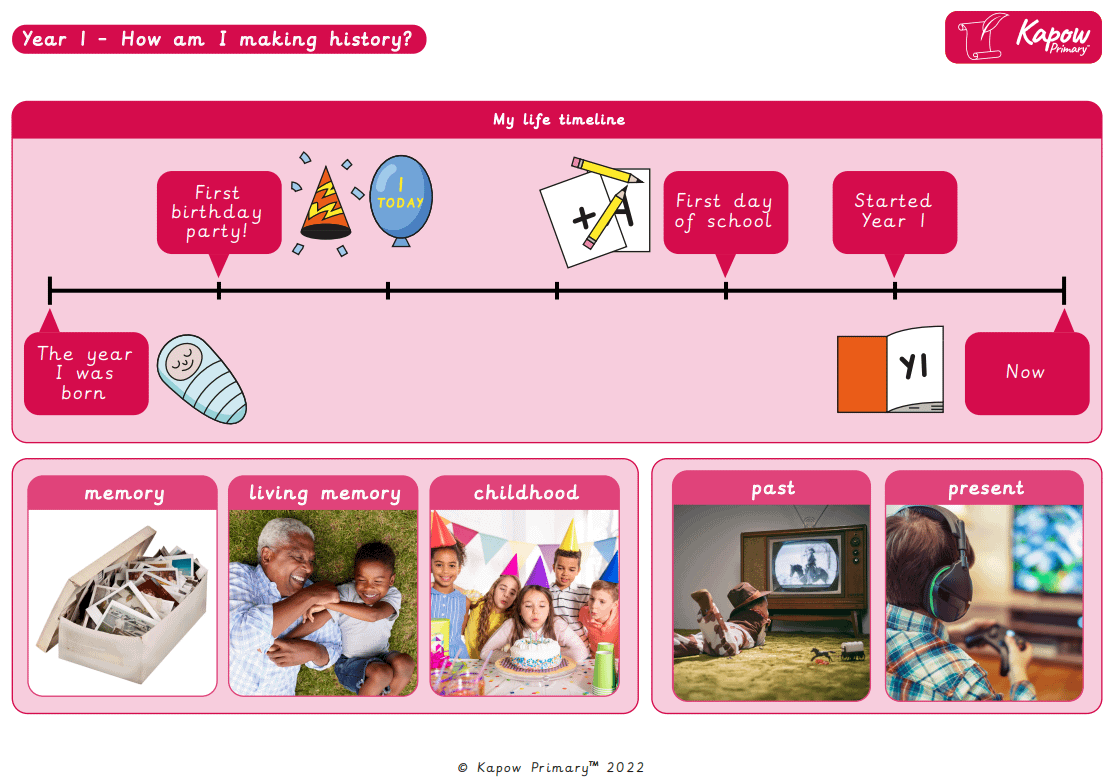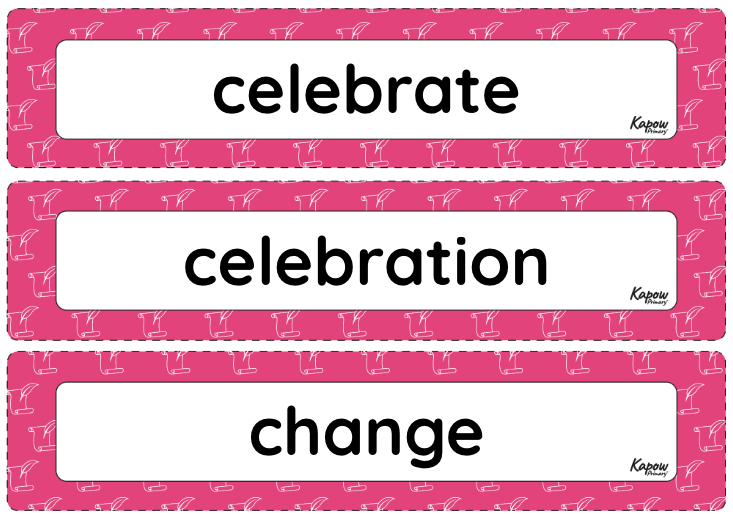Y1/2 (A): How am I making history?
Use this unit hub to inform your medium-term plan.
Unit outcomes
Pupils who are secure will be able to:
- Order three photographs correctly on a simple timeline.
- Use the terms ‘before’ and ‘after’ when discussing their timelines.
- Talk about three memories and place one of them on a timeline.
- Explain why memories are special and name four events that they celebrate throughout the year.
- Think of three ways they celebrate their birthday.
- Ask a visitor one question about childhood in the past.
- Know a similarity and a difference between childhood now and in the past.
- Add three ideas to a time capsule about themselves.
- Use key vocabulary to compare the present, the past and possible changes in the future.
Suggested prior learning
This is the first unit in the Kapow Primary scheme. EYFS Reception content available from September 2023.Lessons
Y1/2 (A): Lesson 1: What is my history?
- To develop an understanding of personal chronology.
Y1/2 (A): Lesson 2: How can I find out more about myself?
- To learn more about my history.
Y1/2 (A): Lesson 3: How are special events remembered?
- To explore how we remember events.
Y1/2 (A): Lesson 4: What was it like for children in the past?
- To find out what childhood was like for our parents and grandparents.
Y1/2 (A): Lesson 5: What have I learnt about childhood in the past?
- To compare childhood now with childhood in the past.
Y1/2 (A): Lesson 6: How am I making history?
- To identify that some things change and some things stay the same.
Key skills
Key knowledge
Related content
Unit resources

Knowledge organiser – History Y1: How am I making history?
Aimed at pupils, a single page document that gives key facts and definitions from the 'How am I making history?'…

Vocabulary display: How am I making history?
A display version of the key vocabulary from the How am I making history? unit.
Cross-curricular opportunities
RSE & PSHE
‘Pupils should know:
- that families are important for children growing up because they can give love, security and stability.’
See PSHE Association guidance.
Art and design
‘Pupils should be taught:
- to use drawing, painting and sculpture to develop and share their ideas, experiences and imagination.’
See National curriculum - Art and design key stages 1 to 2.
Mathematics
‘Pupils should be taught to:
- recognise and use language relating to dates, including days of the week, weeks, months and years.’
See National curriculum - Mathematics key stages 1 to 2.
English
‘Pupils should be taught to:
- ask relevant questions to extend their understanding and knowledge.’
See National curriculum - English key stages 1 to 2.
British values: Tolerance of different faiths and beliefs.

